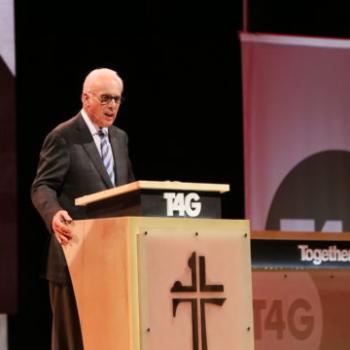This post is part of a series walking through the second volume of Abraham Kuyper’s Common Grace.
For better or worse, the common view of the solution to ‘the problem’ (that people aren’t as bad as the Scriptural doctrine of total depravity seems to suggest, and that Christians aren’t as good as the Scriptural doctrine of regeneration says we should be) discussed in chapter 4 is now defunct–especially in academia. Rather than assuming that we’re all good people, the intellectual elites offer two competing views, one optimistic and one pessimistic.
The optimistic view is that of modernism. Specifically, it argues that ‘the problem’ is correctible ignorance, rather than actively evil. That is, the beginning point is a denial of a general evil in the first place. The solution consequently becomes simply making it so that the lower, ‘worse’, classes live like the higher classes through the tool of education and all will be well in the world. Orthodox Christianity does not of course oppose education, but it also insists that the Bible is true and that consequently man is wicked. This doctrine undermines the modernists, which in turn means they must reinterpret the Bible as pious myth wrapped around morality tales. Which then leads to the logical question of why we ought to even bother reading the Bible if that’s all it is–which leads to our modern circumstance of no one actually reading the Bible.
Into the vacuum left by the exit of the Scriptures steps evolution, which gives us a high view of ourselves as the pinnacle of the ongoing development of creation. (And clearly we can see that there is progress, though not uniform and with vast variety between individuals.) The modernist now redefines ‘sin’ as a failure to progress far enough given the opportunity. The solution to sin, already established as education, now must be rigorously enforced, so in addition to ‘education’ the modernist adds ‘police’ in order to forcibly encourage growth away from our sinful retrograde animal natures. These educational and policing efforts must be led by the few more evolved/better, while the few who are ‘orthodox and moralistic’ (the categories from the common view in the previous chapter) have no place here and ‘are the criminals proper.’ (41-42)
At heart, this view is pantheistic and involves an evolving God as much as an evolving mankind. Fortunately, this view also founders on reality, and either bends back to Orthodoxy or turns to the pessimistic option held by the academics.
The pessimistic view is a reaction to modernism and says that the world is in fact awful, but that the awfulness of the world can be resisted by an iron will. Man is now a victim of conditions, from which a few brave souls might escape through suicide.
This pessimistic view agrees with Orthodoxy about sin and determinism, but sees no hope (even while agreeing about the role of the will–and at the very least the pessimists tolerate those of us who hold to Orthodoxy).
Yet, despite the poor state these three views (common, optimistic, pessimistic) lead to, joy remains. For by contrast, the truth of Orthodoxy just shines even brighter, and we see all the more our need for a robust doctrine of common grace.
Dr. Coyle Neal is co-host of the City of Man Podcast and an Associate Professor of Political Science at Southwest Baptist University in Bolivar, MO













